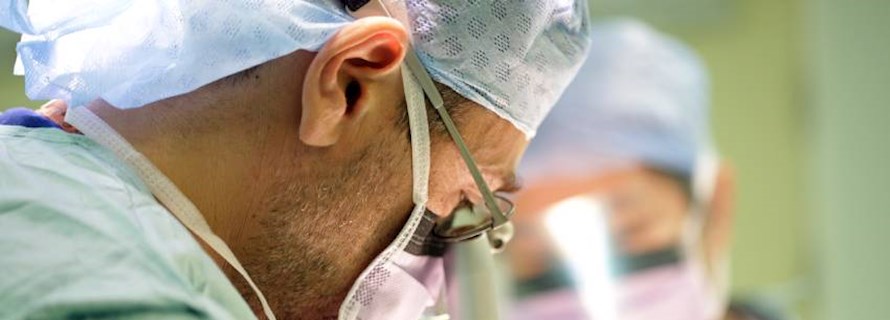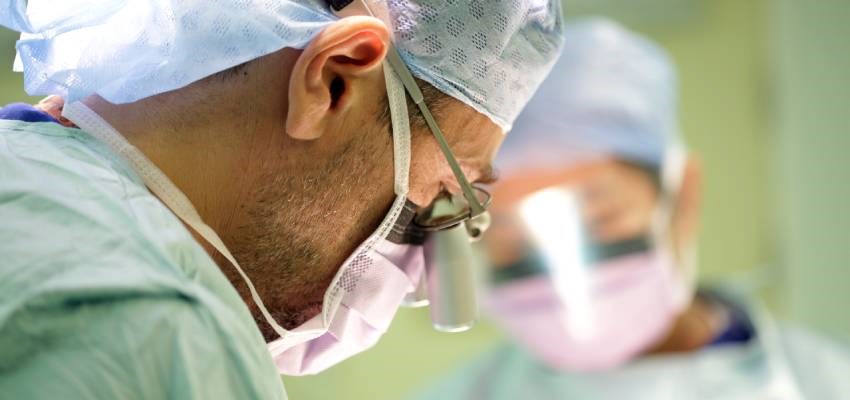Decompression and neurolysis of nerves
Surgery to release trapped peripheral nerves, relieving pain and numbness
Our leading nerve specialist carries out this complex procedure at the Peripheral Nerve Unit
What is nerve decompression surgery?
There are many causes of peripheral nerve damage. Traumatic impact, infections, hereditary and autoimmune conditions, metabolic causes and diabetes are all common factors. When they become trapped, you can feel numbness, pain, muscle weakness, sensitivity to touch and even burning sensations. If motor nerves are affected, you may experience paralysis. These symptoms can be short-term or chronic, depending on the cause.
This nerve procedure aims to relieve the pressure of a trapped peripheral nerve (neuropathy).
Need to know
-
What happens during nerve decompression? icon plus
This procedure happens under general anaesthetic. Your surgeon will use a special surgical microscopic loop to examine the affected area. Once the compressed nerve is found they will cut any tight bands of ligaments or tissues pressing on the nerve (neurolysis) to relieve pressure. The nerve is then left alone to regain function. -
How to prepare for nerve decompression surgery icon plus
Your consultant will explain the procedure to you and answer any questions you may have. Because you'll be having general anaesthetic, they'll let you know how long you should avoid eating and drinking before surgery. Like all procedures, there may be some risks and side effects involved. Your consultant will explain these to you. -
After your surgery icon plus
After a few hours of rest, you should be able to go home the same day. If the procedure was performed after trauma, this may be longer. Your consultant will let you know when you can get back to your usual routine, including work or exercise.
As nerve fibres grow back slowly, you may only feel the benefits of this procedure after some time. If the nerve damage is severe, you may not regain full function. Your consultant will answer any questions you may have.
Mr Marco Sinisi - Peripheral Nerve Specialist
At HCA Healthcare UK, we work with leading consultants to enable access to the the latest techniques and treatment.
Mr Marco Sinisi is our lead consultant for Peripheral Nerve Injuries based at The Wellington Hospital. Mr Sinisi has a comprehensive knowledge of nerve injuries and has experience in a wide range of nerve problems from trauma through to sports injuries. He is experienced in managing complex nerve conditions as well as performing complex nerve operations.




Our locations
From complex nerve surgery to tests and diagnostic procedures, we provide exceptional peripheral nerve care across our network of hospitals, outpatient centres and specialist clinics.
-
Peripheral Nerve Injury (PNI) Unit
The PNI Unit at The Wellington Hospital
Wellington Place
London NW8 9LE
-
The Wellington Hospital Elstree Waterfront
The Waterfront Business Park
Beaufort House, Elstree Road
Elstree WD6 3BS
Book a peripheral nerve appointment
We're happy to help you make an appointment with Mr Marco Sinisi. We can also make imaging and outpatient physiotherapy appointments for you.
Call us today
020 7079 4344